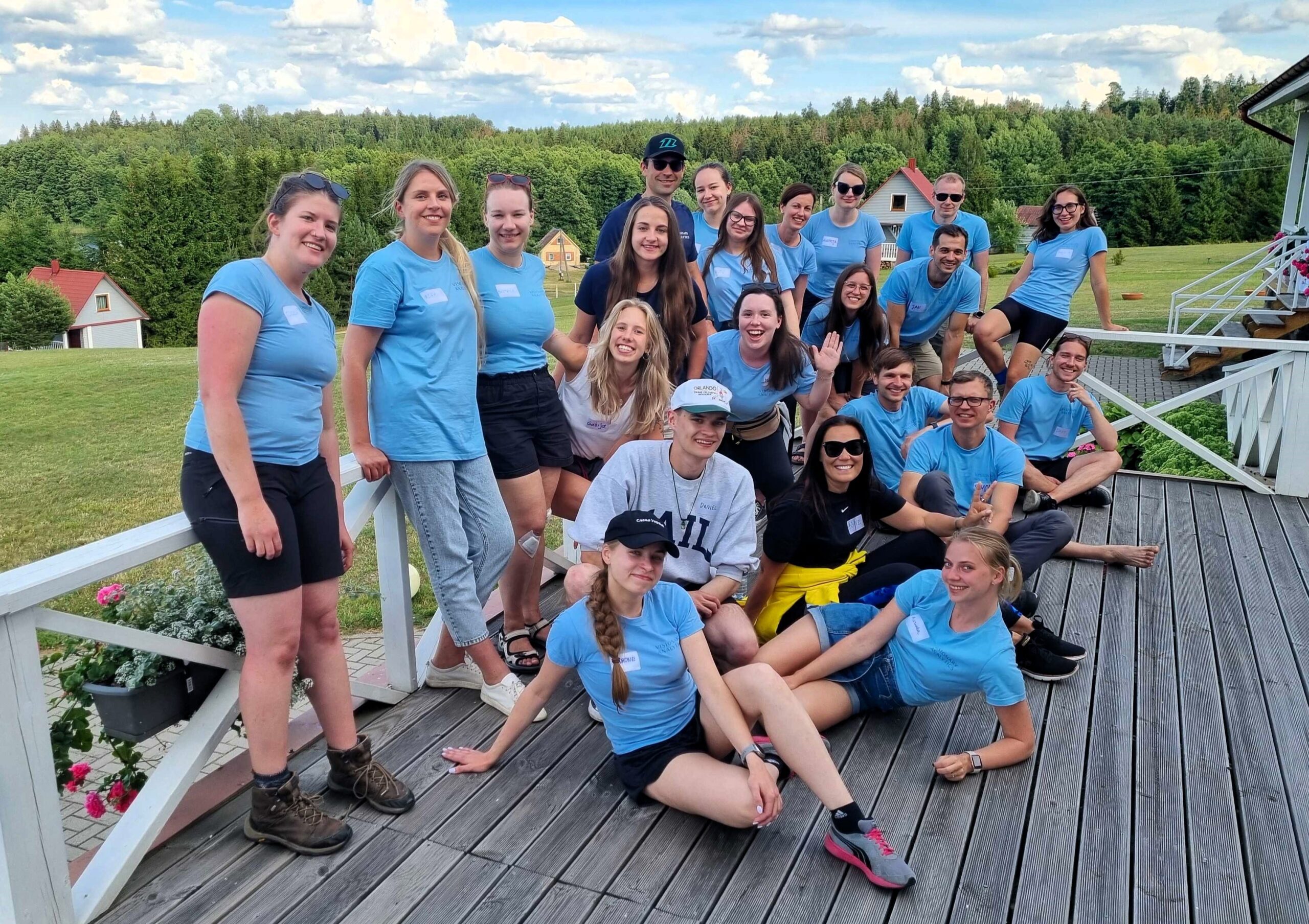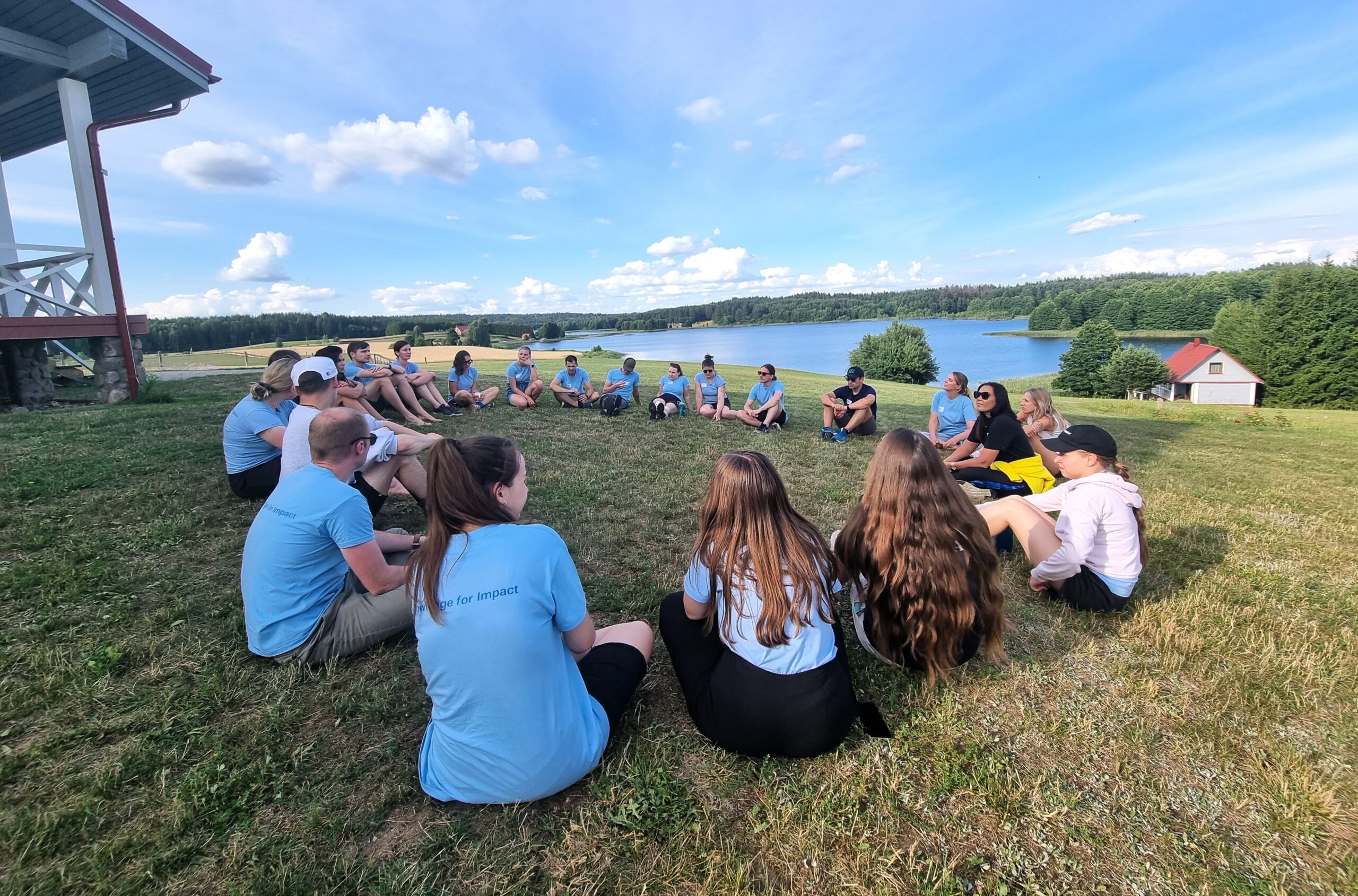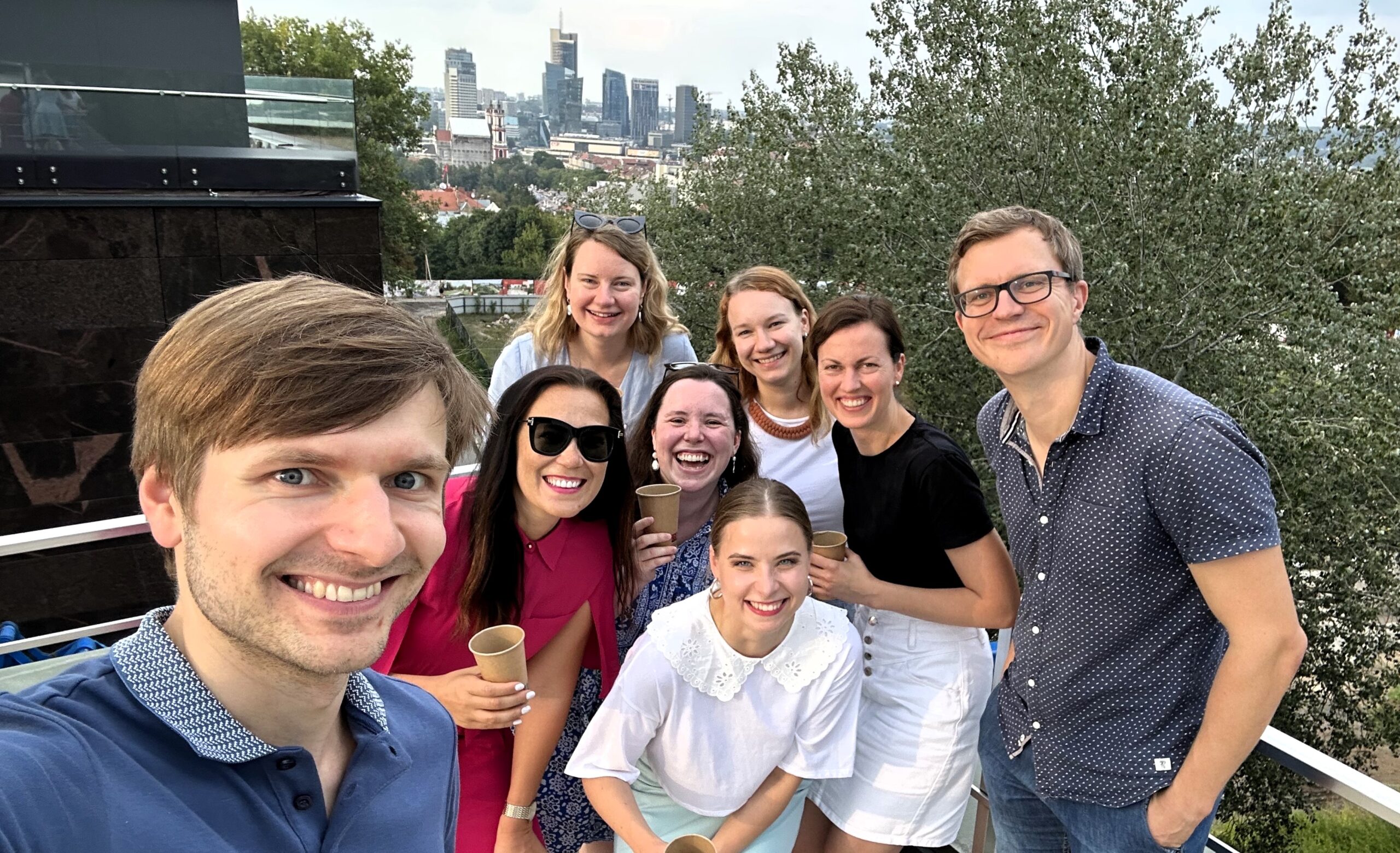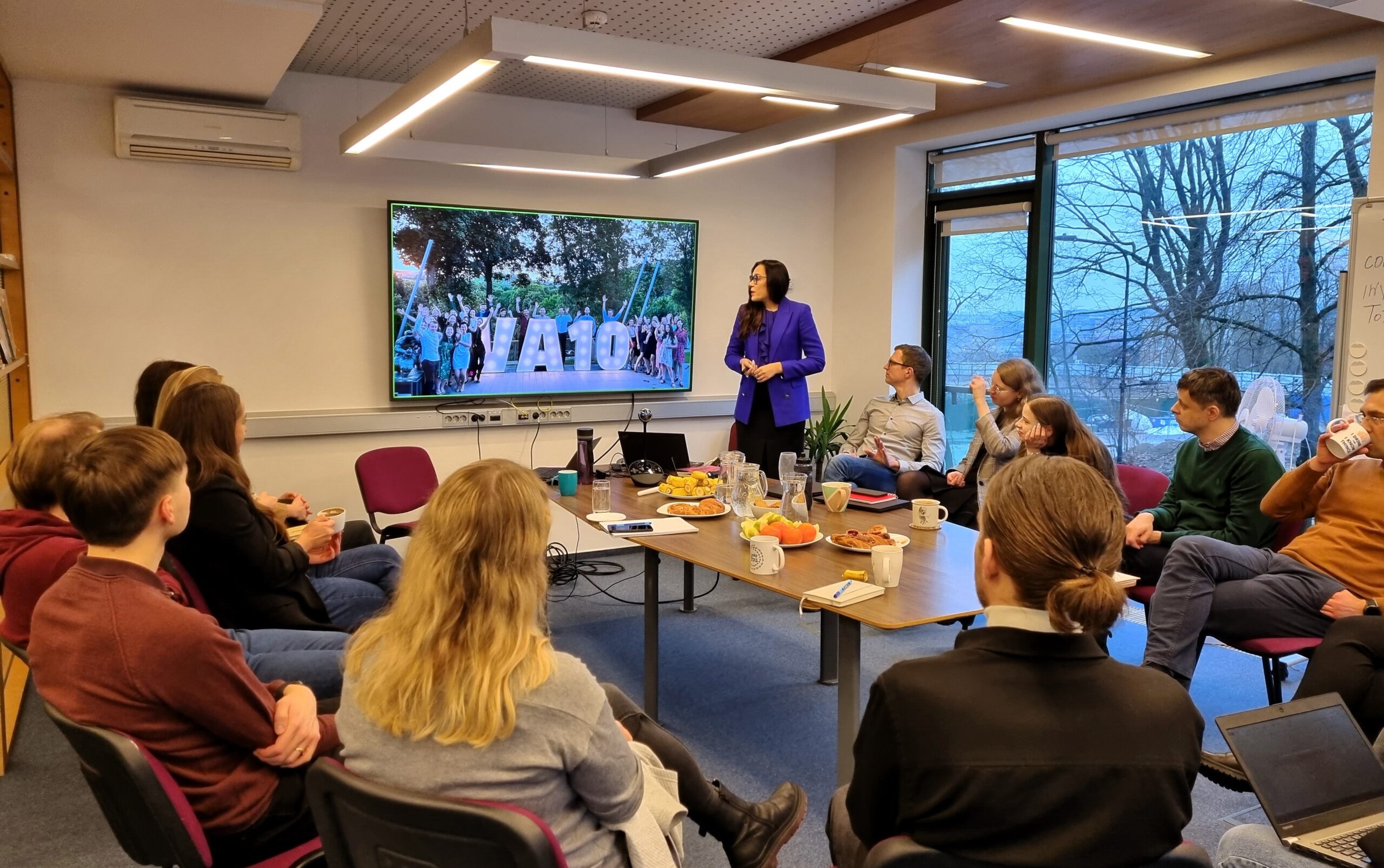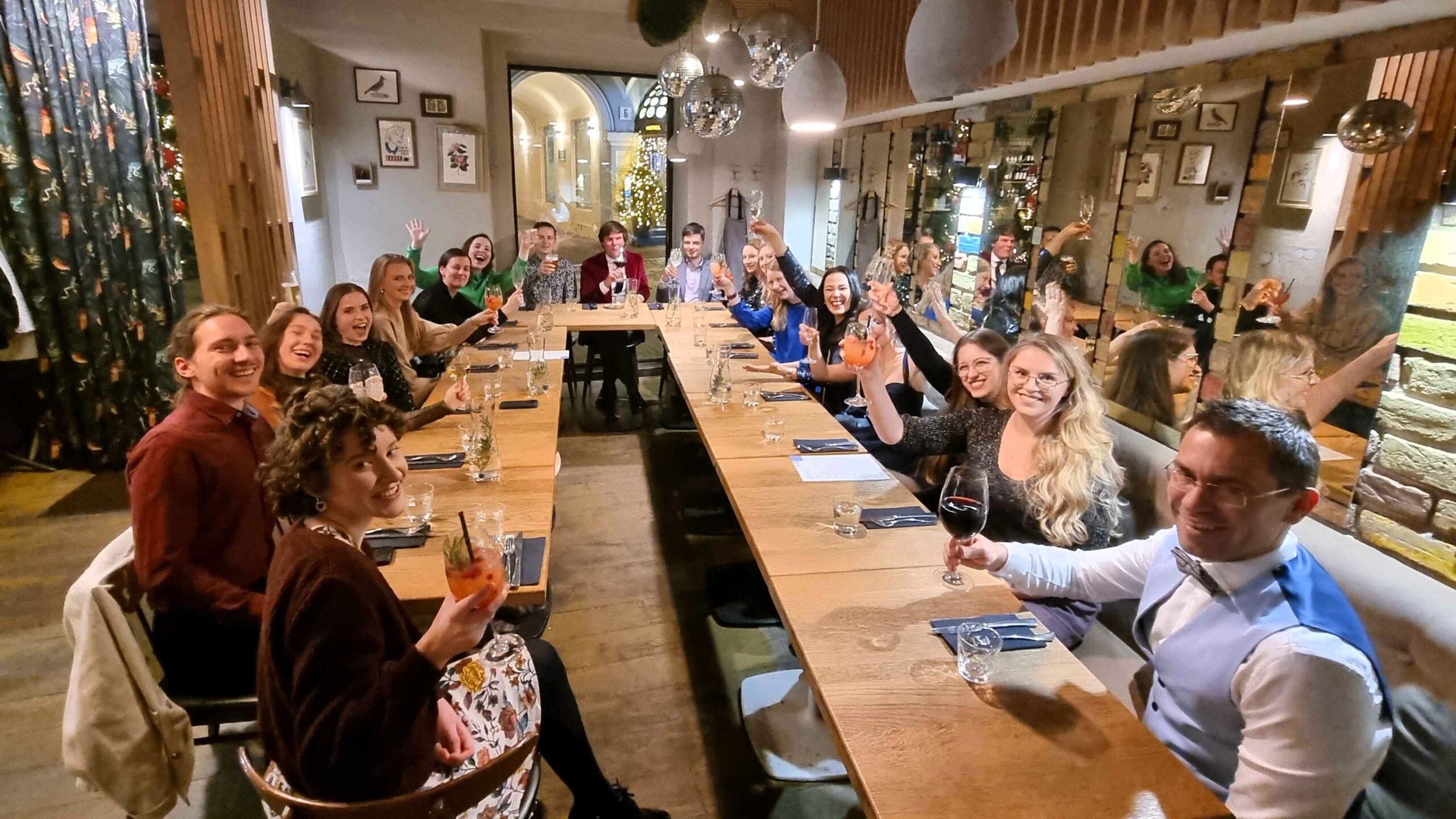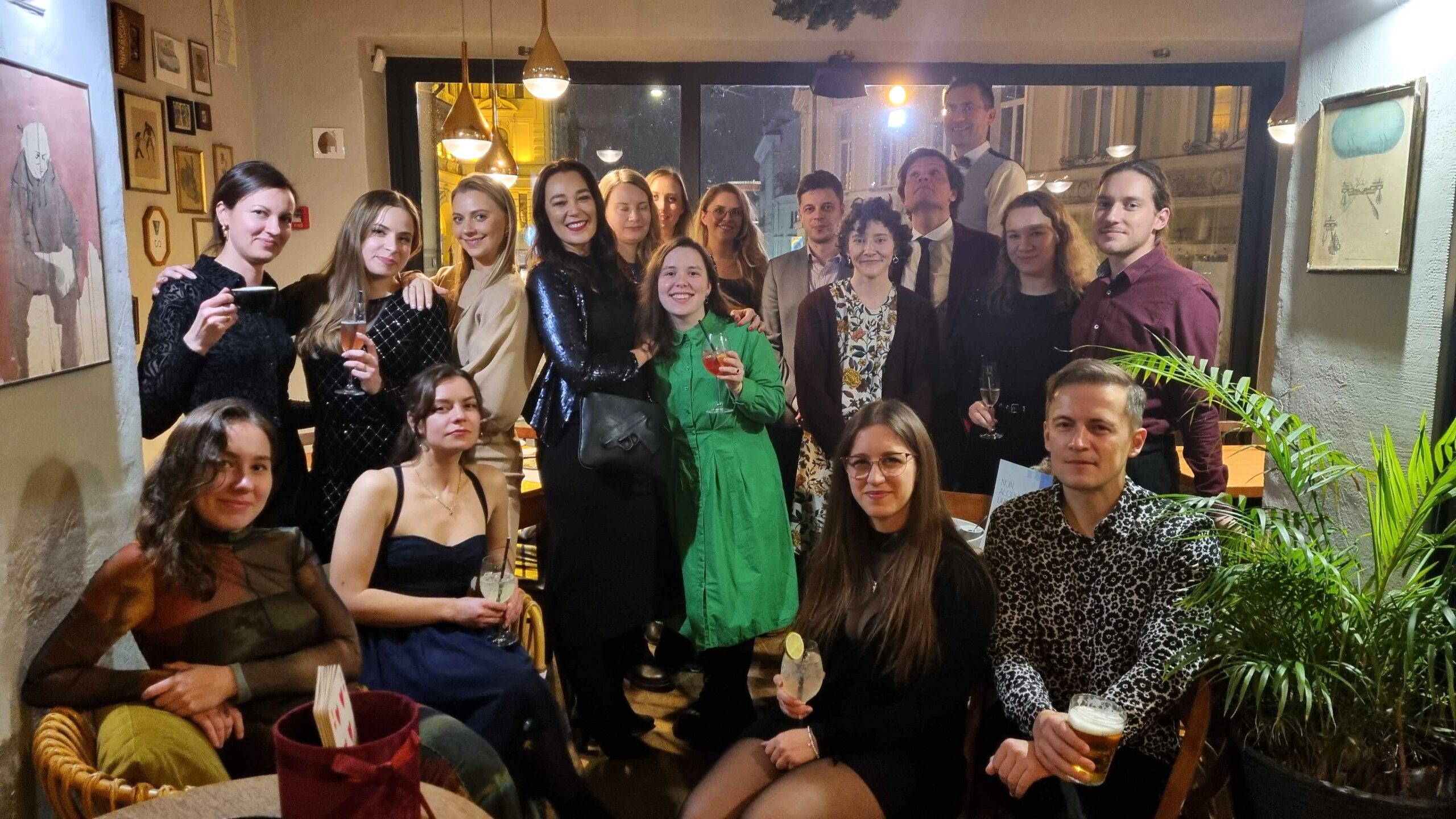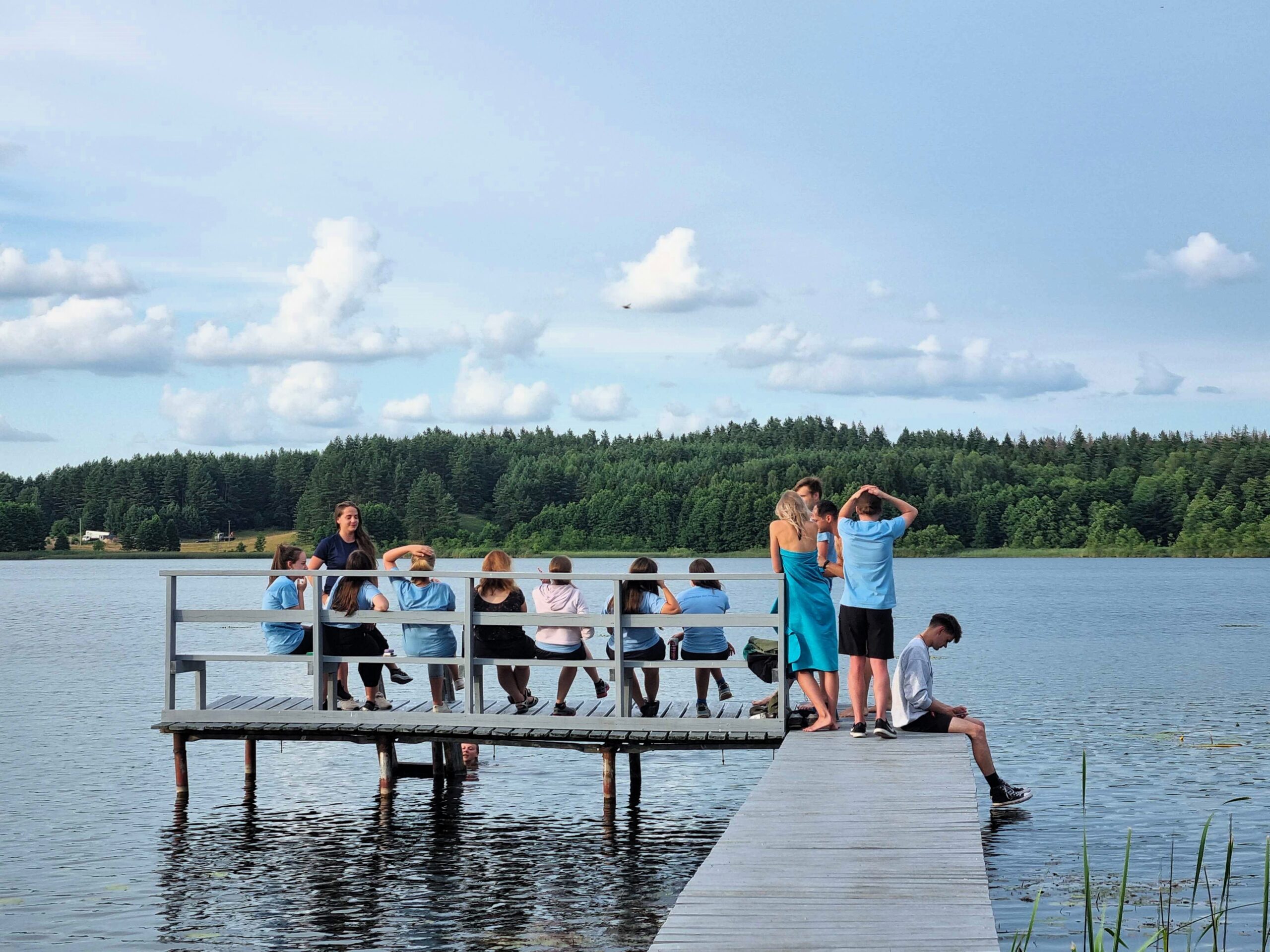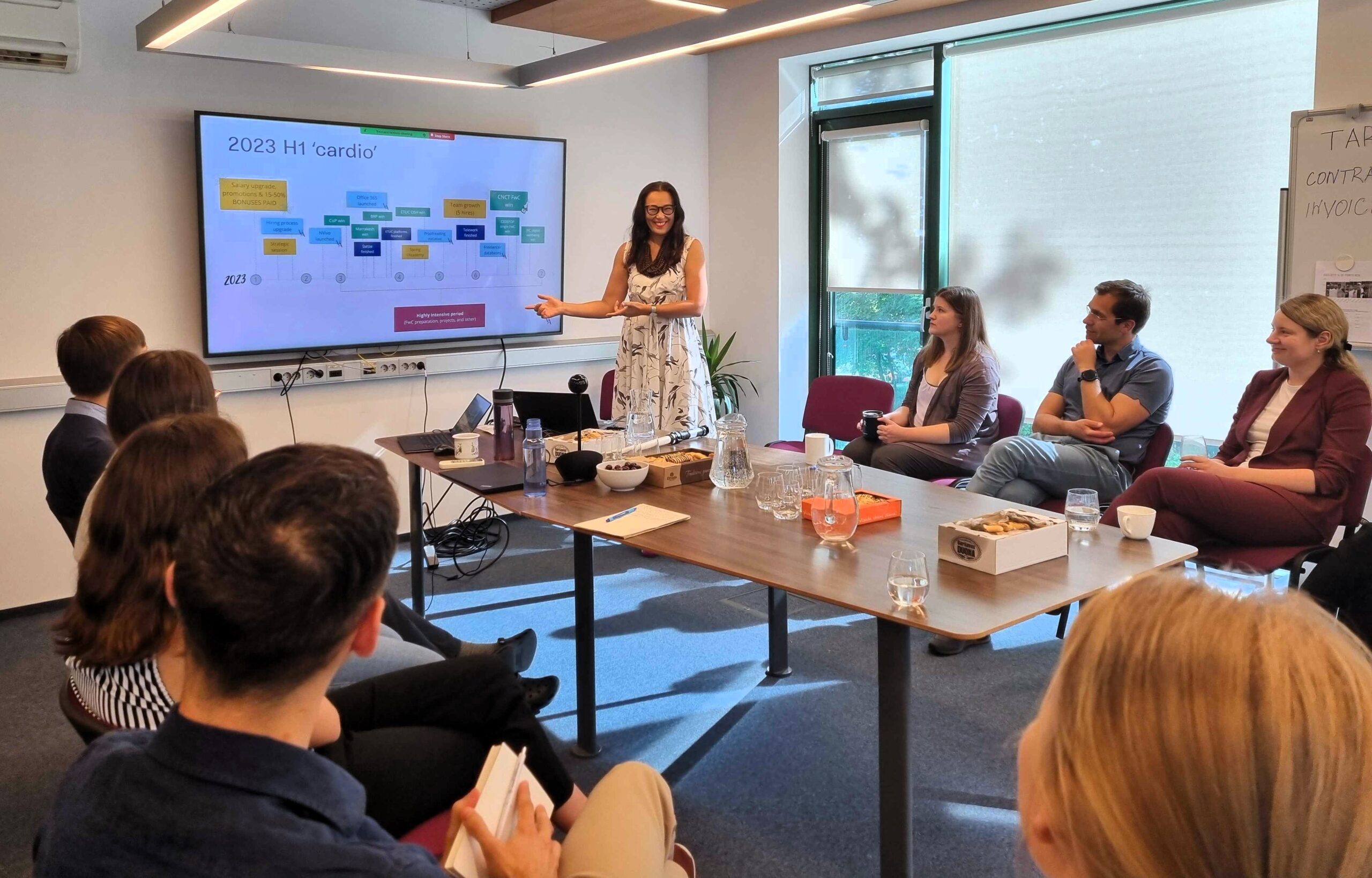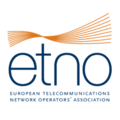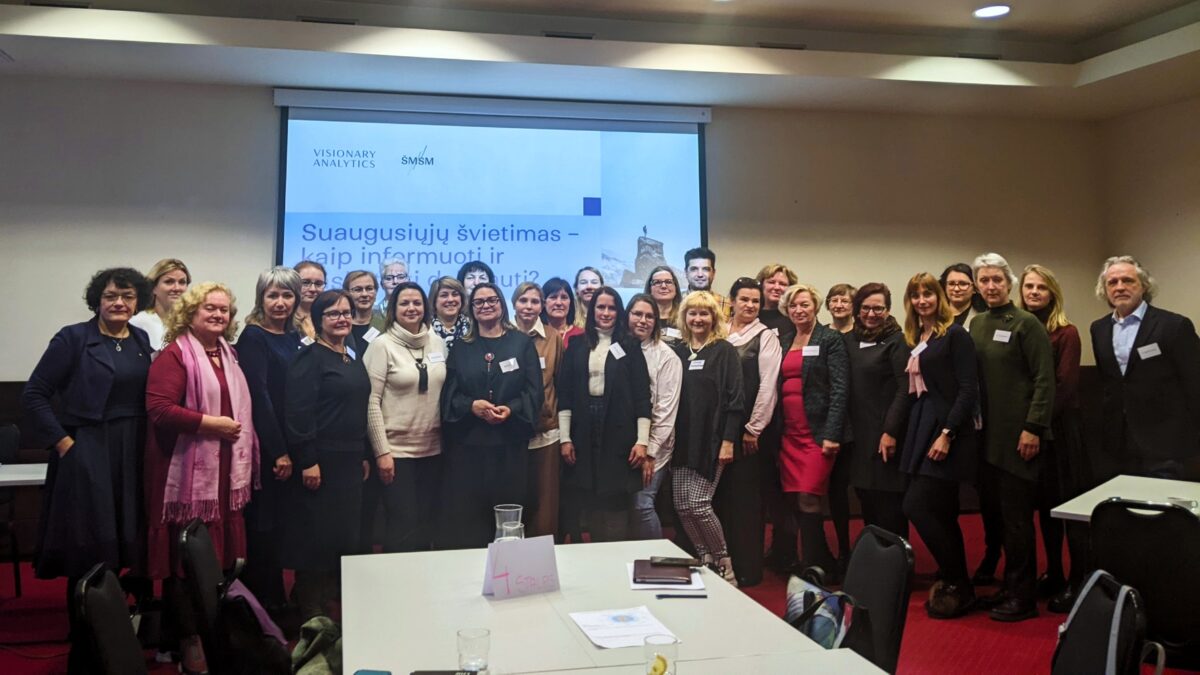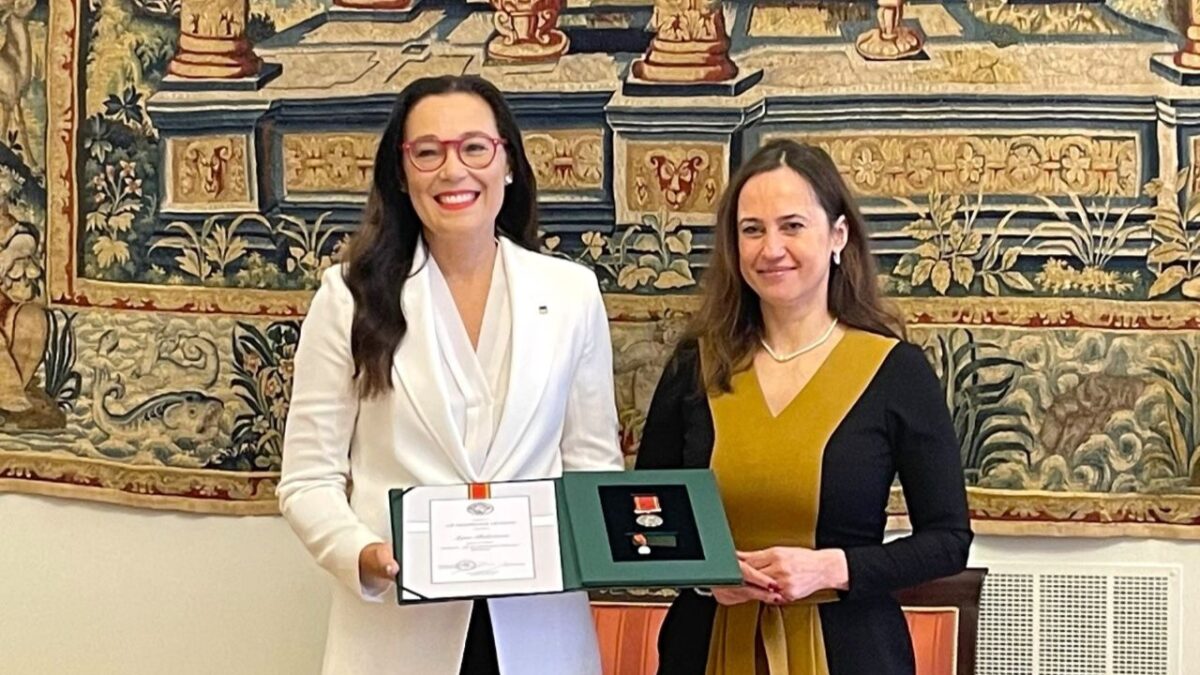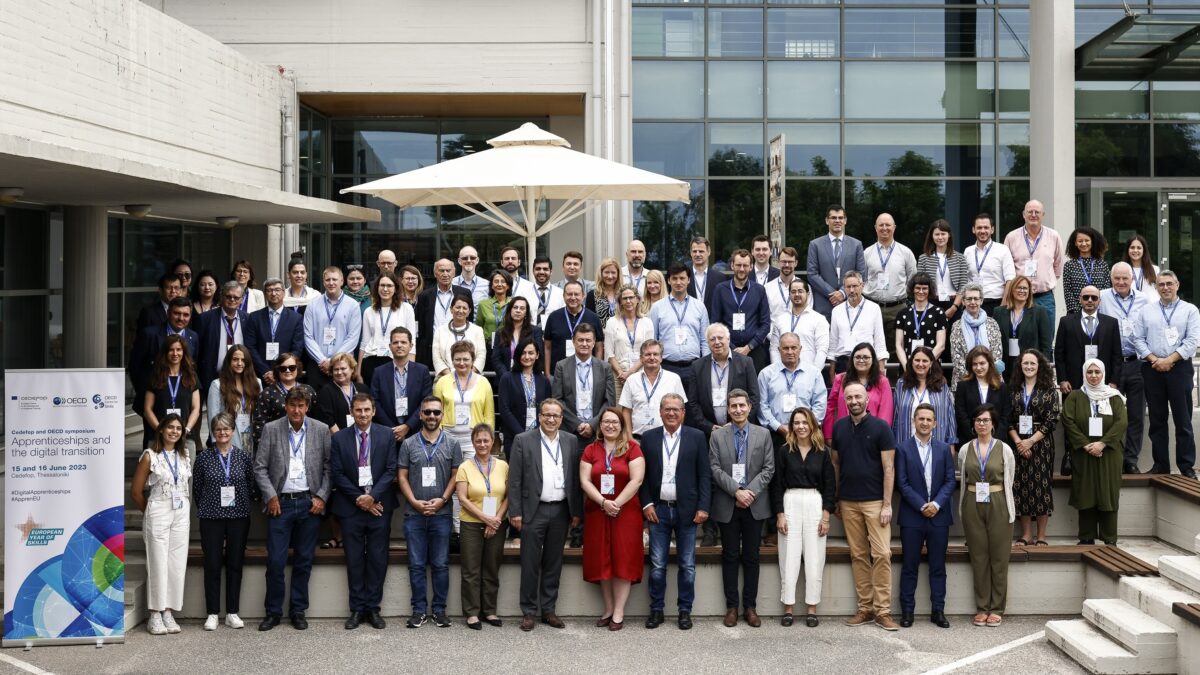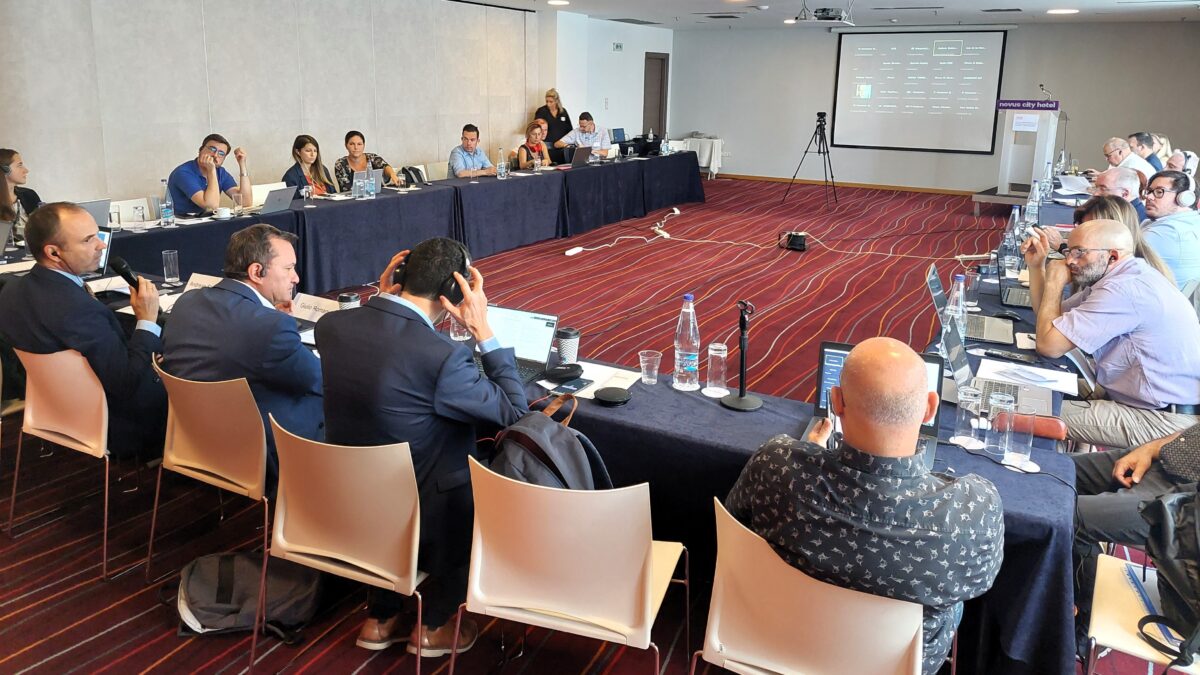Take a look at the overview of Visionary Analytics 2023 achievements, highlights, and contributions to the wider societal impact.
2023 highlights

Small giants among the best in Europe
As our vision is to be a standard of excellence and value in our sector and 2023 brought us closer than ever. We saw immense growth in our markets holding even stronger positions in over 10 Framework Contracts with the European Commission, Cedefop, OECD, EIB, and European Parliament among the best in Europe. In 2023 we led and contributed to over 40 projects on policies spanning from school education by 2040 to EU missions, from algorithmic management to twin transitions, from hybrid work to copyright, and much more!

Welcoming a new company partner
12 years ago, Visionary Analytics was established by three founding partners Dr Agnė Paliokaitė, Dr Žilvinas Martinaitis, and Simonas Gaušas who have been working throughout the 2023 on developing the partnership model and getting ready to welcome a new partner to join their team. Having been an integral part of VA since 2015 starting as an intern at the company, our Research Manager Audronė Sadauskaitė was the first one to step into a new role as a partner! Her growth has mirrored our own and Audronė's journey with us has been nothing short of inspiring. We are confident that her skills will play a pivotal role in steering us towards even greater success.

Going remote-first and new employer value proposition
While others are looking to find ways to bring people back into the office, we have decided to bring people together by giving them autonomy, trust, and responsibility. As we seek to foster a work culture that inspires and motivates our team, we also want to invest in their well-being. This is why we have fully embraced the remote-first culture and decided to revamp our employer value proposition by further investing into our team’s home office space, private health insurance, and team spirit through team days, travel budgets, and more.
Spotlight projects
How did we make an impact last year? Check out the selected projects and initiatives below!
Spotlight publications
Take a look at some of our reports and academic papers published in 2023!


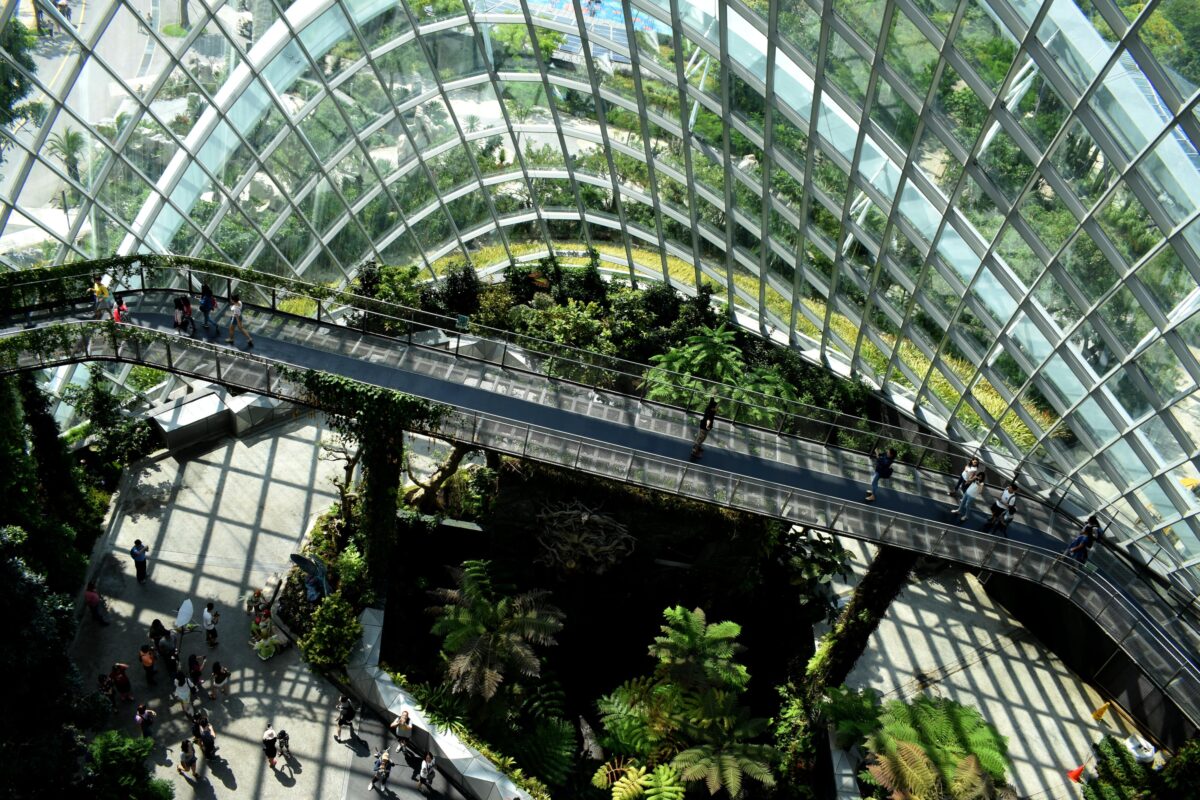



Contribution to public discussion
Take a look at some of our 2023 activities and contributions to the society!
One team
At Visionary Analytics we believe that people and culture are our greatest assets. We also believe that a company of the future is equally profit- and values- driven. Thus, we give our 100 percent to: our clients and employees, business and personal development, autonomy and teamwork, high standards and strong support, upholding strong values and practicing what we preach.
We pursue to advance and promote diversity in our own firm, our clients, and in society more broadly as well as to foster an inclusive culture, where every colleague - regardless of background - feels a deep sense of respect and belonging.
As our team has become remote-first, we have supported it with numerous upgrades of our employer value proposition to foster the culture, adapt to the new needs as well as show appreciation for our colleagues stepping into the 2024.
In 2023, we:
- Worked from Lithuania, Germany, the Netherlands, Belgium, Italy, Switzerland, Spain, Cyprus, Australia, Singapore, Scotland, Estonia, Finland, Poland, Malta, France, Ecuador, and Greece.
- Fully developed our partnership model and welcomed a new company partner!
- Embraced remote-first and decided to focus on autonomy, trust, responsibility, and employee wellbeing through workplace innovation.
- Besides formal company events, organised seven informal gatherings to commemorate colleagues’ personal achievements, gather for a summer closing grill, a rally to save a tree, an office farewell party, and more.
- Conducted two VA Academies, that included trainings on interviews, writing and conducting desk research, emotional resilience and burnout prevention, collaboration across teams and more.
- Experimented with our Hour of Openness events to encourage team discussions, freedom to fail, and honesty.
- Delivered multiple internal initiatives to facilitate the work of our team through new IT solutions, improving cross-border hiring, and becoming more efficient through less is more but better outlook in numerous company areas.
- Dedicated attention to our Visionaries’ professional growth and personal development through mentorship meetings and HR talks.
